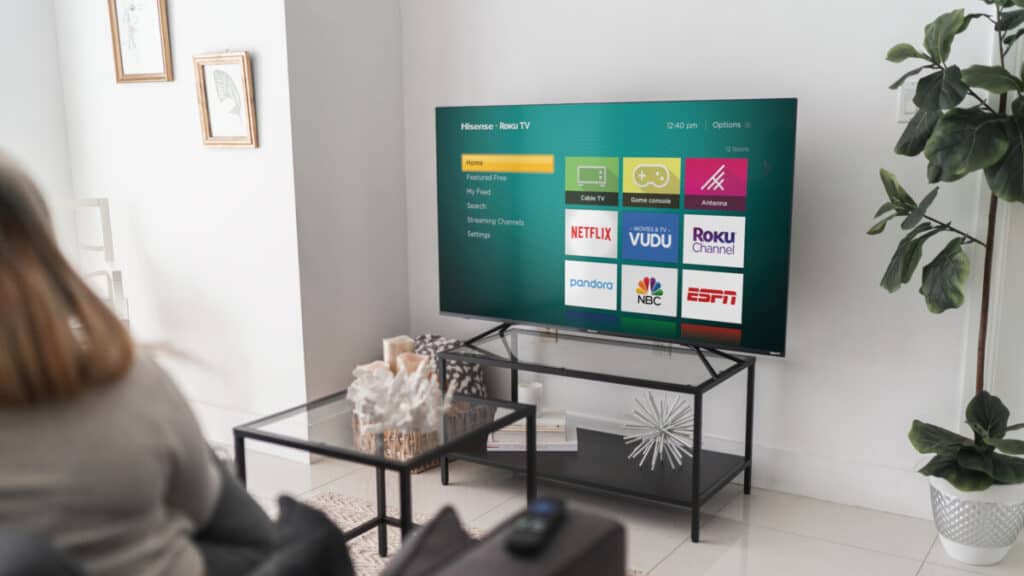Can a Hisense TV Get a Virus?
When you buy through our links, we may earn an affiliate commission.
DO you love the Smart TV and think of buying one from Hisense? However, you are worried if it can be hacked or infected with malware. Will there be any chance that viruses corrupt your data and other preferences?
As a general rule, all Hisense TVs are vulnerable to malware attacks and can get viruses. They remain connected to the internet and exchange information like any computer system. However, it is rare for them to damage the data with malware.
Although it may sound unnerving that your home Hisense TV is susceptible to viruses, you need not worry about your preferences and data being damaged or sabotaged. Continue reading this post to learn the reasons behind it right now!
Can Smart TV be Affected by Virus?
All Smart TVs are susceptible to viruses because they have internet connectivity, Bluetooth to run various applications. They also have internal storage to store applications and files. Furthermore, many such TVs have USB ports where an infected flash drive could transfer the virus.
However, even if a Smart TV gets a virus, it is unlikely that any damage will occur due to these reasons:
- Smart TVs have anti-virus programs to detect the incoming virus immediately and make it ineffective. If an antivirus application is not present, the Android operating system supports Google Play Store to install anti-virus applications.
- TV systems use processors different from those found on phones and computers. Therefore, they are unlikely to be targeted by most malware attacks.
- Smart TV has a read-only operating system to read the code and perform functions accordingly. However, they cannot modify the contents in any situation. Hence, it becomes hard for a nefarious person to make an effective virus because it would require making specific additions/changes to change certain functionalities of the TV.
- Any firmware updates for the Smart TV are digitally signed, meaning that there is little to no chance that a virus will find a way inside the TV.
- In the rare event that a virus not only finds its way into the TV but also evades detection by the anti-virus, it will still only have access to the general settings and configuration of the TV.
- If a virus sabotages the device, the user can force a system reset and return the TV to its factory settings.
Now, let’s look at if your smart TV is spying on you.
How is My Smart TV Spying on Me?
Smart TVs can spy on users in a variety of ways. They can collect data about viewership and may track the location too. Some smart TVs come with integrated cameras, and most of them have microphones too. Others can use these devices to spy on users and track their daily activities by listening to them.
A smart TV can spy on its users in the following ways:
- ACR software builds a viewer profile of users by tracking their viewing habits, content preferences, search and browsing history, IP address, etc. Advertisers use this profile to target their desired audience across multiple platforms and devices.
- Hackers and other malicious persons can use integrated cameras to spy on you.
- Integrated microphones can record your voice and allow its use for nefarious purposes.
It becomes convenient to tackle such issues if you avoid installing unwanted applications on your TV.
Can Firestick Get a Virus?
Like other devices, the Amazon Firestick can also get a virus. Symptoms of virus infection include unexplained sluggish performance, abnormal heating of the device, and, specific to a common crypto-mining virus, the appearance of a green pop-up with an Android icon called Test.
Firestick runs on an Android-based operating environment, which does not allow app installation from unknown resources by default. Infecting the device would require changing this and installing a third party app known to have malware.
Therefore, the likelihood of Firestick getting a virus is extremely low, and even if it happens, you can reset the device to solve the problem. Alternatively, anti-virus applications are available on the TV stores to combat viruses.
Can Chromecast Get a Virus?
Like other devices that use the internet, Chromecast can get a virus. The device works over WiFi and a USB connection to stream additional content for the viewer on their smart TV. Hackers can sabotage the device to stream unwanted content on the TV or take information about the user’s network and location.
Some steps can prevent Chromecast from being used by malicious entities.
- Avoid using Guest Mode when a WiFi network is not available nearby.
- If your network router is shared between you and other people, set up Virtual LANs (VLANs) for your own devices, including your Chromecast.
- Use a VPN (Virtual Private Network) for your devices so that any hacks will not access your location or other personal information.
Now you know everything about Hisense spying and viruses.
Conclusion
The advent of Smart TVs has brought ultimate convenience, unparalleled performance, and an endless amount of content to every home. However, the same things that make them desirable can also compromise their users in numerous ways. It can be hard to have an enjoyable experience on your smart TV if you remain worried about malware attacks and hacks on your devices.
Fortunately, it is not very likely to happen often. As long as you use your smart TV and connected devices on a secure home network, you will not have to worry about anyone or anything snooping around in your system. Just remember to review privacy settings and change them as necessary to prevent misuse of your data.

